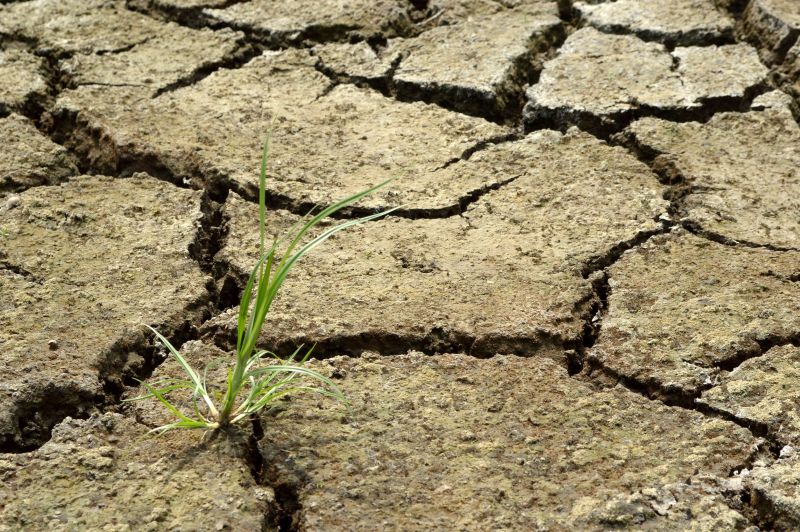
Farmers in the EU will be able to receive payments in advance and more flexibility as they grapple with the difficulties of extreme droughts.
The prolonged heatwave in several European countries is having a drastic impact on arable crops, as well as animal feed which could also have an impact on animal welfare.
The reduction in the level of animal feed is having a particular impact on the income of livestock farmers, as this will increase their input costs if there is a shortage of fodder later in the year.
In response to this, the European Commission has now confirmed that farmers will be able to receive their direct and rural development payments in advance.
They will be granted more flexibility to use land that would normally not be used for production, in order to feed their animals.
Dramatic satellite images illustrate the dramatic impact that 20 days of #drought can take over northern #Germany, #Denmark & #Sweden. #Water #WaterRisk #Business @WWFWaterRisk pic.twitter.com/6ZGQmJLzct
— Rylan Dobson (@rylan_dobson) August 3, 2018
Commissioner for Agriculture, Phil Hogan, said he is "very concerned" about the prolonged climatic developments.
"I have been in contact with a number of ministers from affected countries to discuss the situation and get up-to-date assessments of its impact," Mr Hogan said.
"The Commission, as always, is ready to support farmers affected by drought using a number of instruments, including higher advance payments, derogations from greening requirements and state aid.
"The Common Agricultural Policy already provides a safety net for farmers who have to deal with unpredictable events. I am encouraging all Member States to look into all possible actions and measures provided for in our legislation."
As #drought hit hard on farmers in Africa..there is no exception for farmers in #Germany ???? As #drought affects more non-conventional drought prone areas, drought management and proactive actions are urgently needed. Find out more https://t.co/dI3SIznoz2@EUEnvironment @dwnews pic.twitter.com/ruBgH3XOwX
— UNCCD (@UNCCD) August 2, 2018
Two specific decisions have been taken to help farmers deal with droughts, including higher advanced payments where farmers will be able to receive up to 70% of their direct payment and 85% of payments under rural development.
Derogations from specific greening requirements is also included, namely crop diversification and ecological focus area rules on land lying fallow, to allow such land to be used for the production of animal feed.
Consideration is also being given to the adoption of further derogations to greening to allow farmers more flexibility to produce fodder.
'Continuing to struggle'
Defra Secretary Michael Gove has also promised support for British farmers hit by the impact of the dry weather, following a drought summit organised by the NFU.
Mr Gove said the government would do "whatever it takes" to maintain food supplies.
"We will make sure farmers have what they need in order to provide us with high-quality food and ensure their businesses survive," he said.
Farming union NFU Cymru has welcomed the EU's measures, and said the Welsh government now needs to introduce a comprehensive package of measures that will help farmers deal with ongoing issues.
'We don't want to allow bureaucracy to get in the way of providing farmers the support they deserve." The messages from Secretary of State @michaelgove after yesterday's drought summit. pic.twitter.com/344KBT8QlM
— NationalFarmersUnion (@NFUtweets) August 2, 2018
John Davies, NFU Cymru President said: “It has now been a week since the emergency summit at the Royal Welsh Show, and I don’t feel the statement issued by Welsh Government fully addressed the issues that were highlighted at the summit.
"Despite the welcomed rain over the last few days, the challenges on Welsh farms remain as serious today as they were last week, with farmers continuing to struggle with what has been one of the longest periods of dry weather in years, on the back of an extremely challenging winter and spring.
“A number of other countries across Europe have fully recognised the difficulties their farmers are suffering and have already put a comprehensive package of support measures in place.
Mr Davies added: "Now that the Commission has provided clear advice on what can be supported, we hope that Welsh Government will properly assess all options available to them in order to make a tangible difference on farms."
